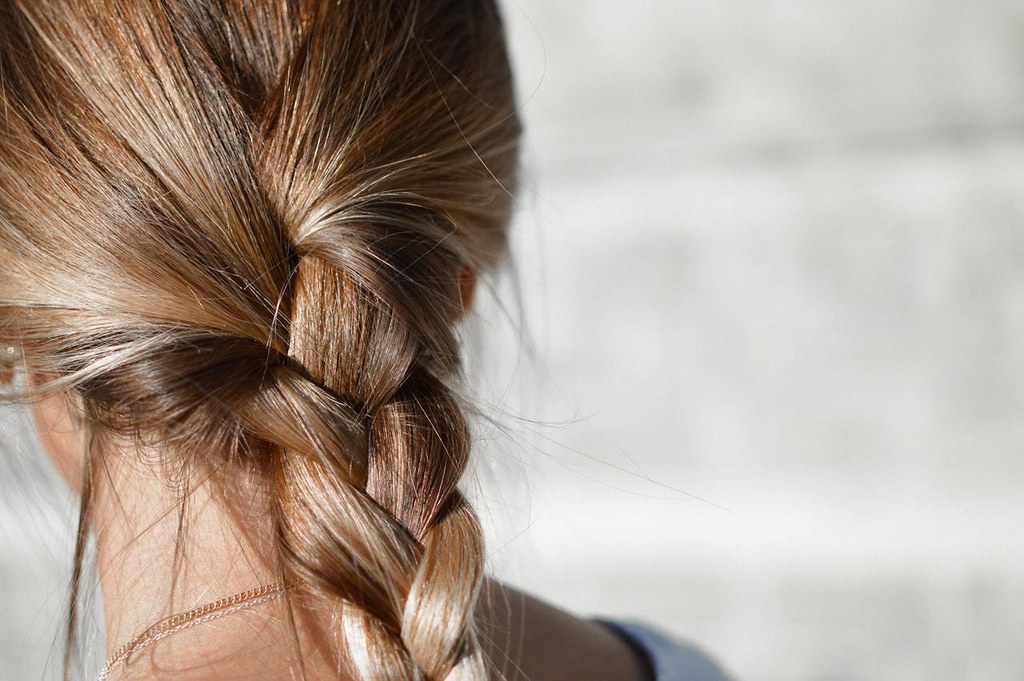
The writing is on the wall and down your shower drain, isn’t it? You’re noticing more hair loss than usual, and the immediate thought might be to reach for a new ‘healthy’ shampoo. Many of us are quick to believe the marketing hype surrounding certain products, hoping they hold the key to stopping the unwelcome shedding. However, what many people consider a solution could actually be silently contributing to the problem.
Dermatologist Melissa Piliang, MD, urges caution against falling for these claims. She clearly states, “You can buy shampoos that are better or worse for your hair, but none treat hair loss. Shampoo companies may make that claim, but there have been at least two big class-action lawsuits against those that have.” This crucial insight underscores the importance of understanding what’s truly in your shampoo bottle and how it impacts your hair and scalp health. Waiting for a new shampoo to kick in can delay necessary care, so recognizing the signs and ingredients to avoid is paramount.
In this in-depth guide, we’ll cut through the noise and delve into the specific shampoo types and ingredients that could be sabotaging your efforts to maintain a healthy head of hair. Drawing on expert insights and scientific understanding, we aim to provide clear, actionable advice to help you navigate the crowded haircare market. Our goal is to empower you to make informed decisions, ensuring your shampoo is a friend to your follicles, not a foe. Remember, maintaining a healthy scalp environment is foundational for growing healthy hair, and sometimes, less is truly more when it comes to chemical exposure.
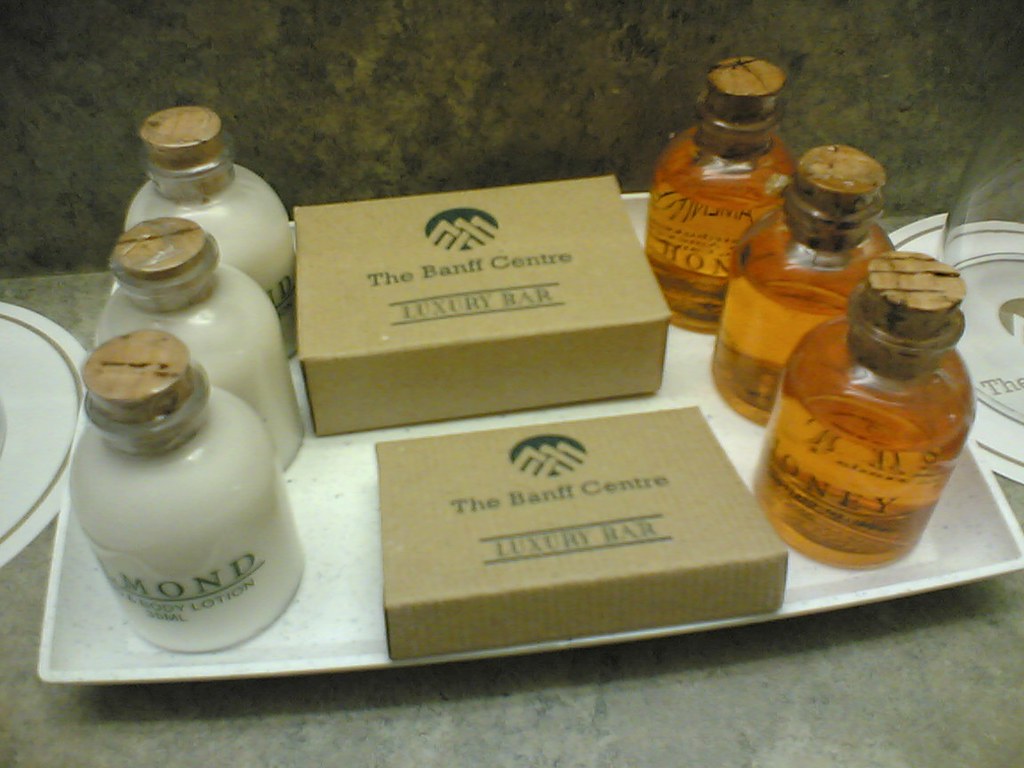
1. **Shampoos with Harsh Sulfates (Sodium Lauryl Sulfate & Sodium Laureth Sulfate)** If you’ve noticed an increase in hair fall after washing, particularly if your shampoo produces a voluminous, bubbly lather, harsh sulfates might be the primary culprit. Ingredients like sodium lauryl sulfate (SLS) and sodium laureth sulfate (SLES) are potent detergents widely used in many commercially available shampoos. Their job is to effectively strip away oil, dirt, product buildup, and dead skin cells, giving you that satisfyingly ‘squeaky clean’ feeling. However, their aggressive cleansing action often goes too far, removing the vital natural oils that protect both your scalp and individual hair strands.
This over-stripping can lead to significant dryness, scalp irritation, and ultimately, weakened hair follicles and shafts. Dr. Melissa Piliang notes, “I commonly see people who think their hair is shedding when it’s really breaking. That breakage is often related to their hair care regimen. For example, harsh shampoos can cause damage.” For individuals with sensitive scalps or pre-existing conditions like eczema, the inflammatory response triggered by SLS can be particularly severe, potentially leading to telogen effluvium, a temporary form of hair loss characterized by increased shedding. The Journal of Dermatological Science highlighted this issue in a 2014 study, observing that harsh surfactants can disrupt the scalp’s natural barrier function, intensifying irritation and potentially contributing to hair shedding.
While sulfates don’t typically damage the hair follicle or directly cause hair to fall out from the root, their ability to make hair strands dry and weak significantly increases the likelihood of breakage. This can make normal shedding, which is around 50 to 100 strands a day, appear much worse than it actually is, accumulating dramatically in your shower drain. Consumer feedback on various platforms, including numerous online reviews, frequently reports increased hair fall after using shampoos with high sulfate concentrations, especially older formulations from well-known brands.
To mitigate this risk, it is crucial to carefully examine the ingredient list on your shampoo bottle. If SLS or SLES are listed prominently near the top, indicating a high concentration, it might be time to consider a gentler alternative. Switching to sulfate-free shampoos can provide a milder cleansing experience, helping to preserve your scalp’s natural moisture barrier and reduce hair damage, particularly if you have dry, long, or frequently washed hair. This simple change can make a profound difference in the overall health and resilience of your hair.
Product on Amazon: Myoc Sodium Lauryl Sulfate-240 Ml (8.11 Fl.Oz), Sodium Lauryl Sulfate for Liquid, Sodium Lauryl Sulfate for Shampoo, Sodium Lauryl Sulfate for Body Wash, Sodium Lauryl Sulfate SLS
Brand: MYOC
Binding: Unknown Binding Product Group: BISS
Price: 11.4 USD
Rating: 4.4 Total reviews: 59
Molecular weight: 240.0
Item Volume: 240 Milliliters
Package Information: Bottle
Item Form: Liquid
Features:
1. Pure Sodium Lauryl Sulfate: A substance that acts as an anionic surfactant in cleaning and personal care products.
2. Gentle & Warm Cleanser: It can soften water’s hardness. It leads to eco-friendly cleaning/washing nicely without drying.
3. Foam Booster: It acts as a foaming agent in multiple formulations such as bubble baths, floor cleansers, laundry liquids, cleansers, soaps, conditioners, etc. It enhances the ability to foam during the process of washing & cleaning.
4. Cosmetic Applications: It is suitable for all skin types and used to prepare baby washes, rash creams, body washes, cleansers & washes due to its non-irritating properties for sensitive skin.
5. Zero Additive: Our Sodium Lauryl Sulfate liquid is free from artificial fragrances and colors. It is a non-toxic, safe, and effective material.
Top Review from US: “This works. It kills moss growth when properly mixed with other ingredients.”
Shopping on Amazon >>
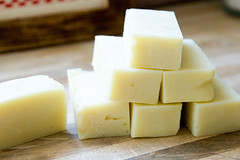
2. **Anti-Dandruff Shampoos with Coal Tar or Selenium Sulfide** Anti-dandruff shampoos containing active ingredients like coal tar or selenium sulfide are undeniably effective for managing conditions such as dandruff and seborrheic dermatitis. These ingredients are designed to combat flaking, itching, and inflammation often associated with an unhealthy scalp. However, their potent medicinal properties, while beneficial for targeted scalp issues, can also present significant drawbacks for overall hair health, especially with prolonged or indiscriminate use. For some users, these ingredients can prove to be overly harsh and irritating.
Coal tar, while effective in reducing scalp scaling, can cause considerable scalp irritation and dryness in sensitive individuals. Over time, this chronic irritation can weaken hair roots, making them more susceptible to shedding. Furthermore, it is important to note that coal tar is considered a known carcinogen in very high doses, prompting a cautious approach to its use. Similarly, selenium sulfide, another common anti-dandruff agent, has been reported to cause issues like discoloration or increased brittleness, particularly in hair that has been colored or chemically treated. This can significantly increase the propensity for hair breakage, mimicking the appearance of actual hair loss.
User experiences shared on social media platforms and various hair care forums frequently mention Neutrogena T/Gel, a product containing coal tar, as a source of excessive dryness and shedding, especially when used for extended periods. The American Academy of Dermatology also advises that coal tar products may not be suitable for all scalp types, particularly those prone to sensitivity, reinforcing the need for individual assessment. While these shampoos can be highly beneficial for specific scalp conditions, they are not formulated for daily, long-term use by everyone.
When selecting an anti-dandruff shampoo, it is vital to be aware of these active ingredients. Look for “coal tar” or “selenium sulfide” in the ingredient list. If you find these ingredients, consider using such shampoos sparingly and only when necessary for managing specific scalp conditions, rather than as your regular daily cleanser. Consulting a dermatologist can help determine the most appropriate anti-dandruff treatment for your specific needs, balancing efficacy with the potential for adverse effects on hair integrity. Prioritizing scalp health means choosing treatments that address the problem without creating new ones for your hair.
Product on Amazon: Dercos Anti Dandruff Shampoo, Dry Scalp Treatment and Itch Relief. Prescription Strength Comparable to 2% Ketoconazole, for Mild to Severe Dandruff-Prone Hair & Flaky, Itchy Scalps, 6.76 Fl. Oz.
Brand: Dercos
Binding: Health and Beauty Product Group: Luxury Beauty
Price: 19.99 USD
Rating: 4.6 Total reviews: 1616
Item Form: Liquid
Hair Type: All
Scent: Sensitive Skin Tested Light Floral & Citrus Scent
Age Range (Description): Adult
Features:
1. Medicated Dandruff Shampoo & Itchy, Dry Scalp Relief: Vichy Dercos Antifungal shampoo, made with 0.6% micronized selenium sulfide, treats recurring dandruff, visible flakes and dry, itchy scalp; as effective as shampoo with 2 percent ketoconazole.
2. Continuous Dandruff Control and Fast Acting Itch Relief: Eliminates up to 100% visible flakes, long lasting treatment reduces flaking, itching, scaling, redness and scalp discomfort from dandruff symptoms
3. Multi Purpose Hydrating Shampoo for Healthier Hair: Formulated with niacinamide and glycerin to stronger, softer hair: 78% more shine, 70% more moisture, 2x less breakage
4. Dermatologist Certified for Efficacy & Tested for Safety: Vichy Dercos Dandruff shampoo for color treated hair, safe for all hair and scalp types, including sensitive, scaling, flaking, irritated or inflamed scalps
Top Review from US: “I don’t normally leave reviews, but this shampoo deserves it. I’ve struggled with seborrheic dermatitis for years and have always had to rely on prescription Ketoconazole shampoo just to keep it under control. Honestly, nothing else worked—until now.I saw Dercos Selenium Sulfide Anti-Dandruff Shampoo on TikTok of all places and figured, why not? I’ve been using it for about a month now, just once a week, and WOW. No flare-ups. No itching. No flaking. Nothing. Just a calm, happy scalp for the first time in ages.What really blew me away is that it’s over-the-counter but performs better than my prescription. The scent is pleasant and not overpowering, and it doesn’t leave my hair feeling stripped or dry like some medicated shampoos do.If you’ve been battling stubborn dandruff or seborrheic dermatitis, this is 100% worth trying. I genuinely didn’t expect it to work this well, but I’m never going back. This stuff is a game-changer!”
Shopping on Amazon >>
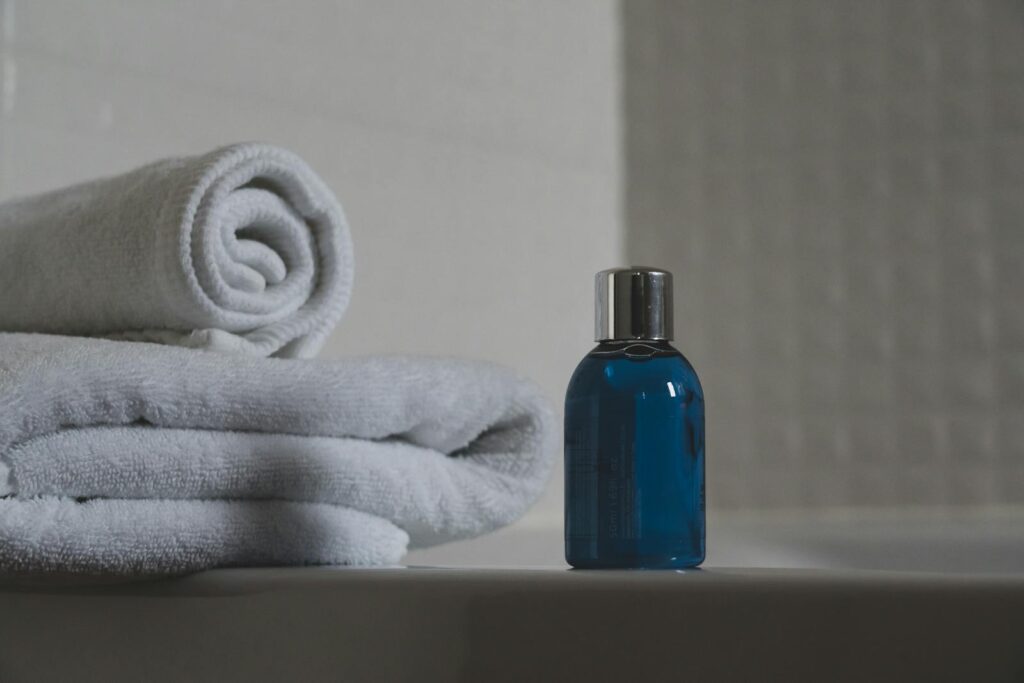
3. **Excessive Use of Clarifying Shampoos** Clarifying shampoos are specially formulated to deeply cleanse the hair and scalp, effectively removing stubborn product buildup, mineral deposits from hard water, and excess oils that regular shampoos might leave behind. They are often hailed as a reset button for the hair, restoring bounce and shine. However, the very intensity that makes them effective also makes them potentially damaging if used improperly or excessively. These shampoos are designed for periodic use, not as an everyday solution, and misunderstanding their purpose can inadvertently lead to significant hair issues, including increased shedding and breakage.
The intense cleansing action of clarifying shampoos, while beneficial for removing residue, can strip the hair of its essential moisture and natural protective oils. This aggressive removal leaves the hair shaft vulnerable, often resulting in hair that feels brittle, dry, and weak. When hair loses its natural hydration and protective barrier, it becomes significantly more prone to breakage, which can easily be mistaken for or exacerbate actual hair loss from the root. For individuals with particular hair types, such as curly or highly textured hair, which naturally require more hydration and are prone to dryness, the effects of overuse can be even more pronounced and detrimental.
Hair stylists and trichologists consistently caution against the over-reliance on clarifying shampoos, emphasizing their role as an occasional treatment rather than a daily staple. Industry publications focused on hair health, such as Allure and Vogue, frequently feature expert advice warning against their excessive use. Consumer reviews, particularly for budget-friendly clarifying lines, often corroborate these warnings, with users reporting increased hair fall and noticeable dryness when these products are incorporated into a daily regimen. These anecdotal accounts reinforce the professional consensus regarding the need for moderation.
To harness the benefits of clarifying shampoos without suffering their potential downsides, it is crucial to limit their use. Experts generally recommend using a clarifying shampoo no more than once a month, or perhaps every few weeks if you use a lot of styling products. Listen to your hair; if it feels overly dry, tangled, or brittle after use, you might be using it too often. By incorporating a rich, moisturizing conditioner or a hair mask after clarifying, you can help replenish lost moisture and maintain the hair’s integrity, ensuring that this powerful cleansing tool remains an ally, not an enemy, in your hair care routine.
Product on Amazon: OGX Clarifying Strength + Rosemary Mint Shampoo, Clarifying Shampoo for Oily Hair Visibly Helps Remove Oil & Residue to Clear Away Buildup, Sulfate-Free Surfactants, 13 fl. oz
Brand: OGX
Binding: Health and Beauty Product Group: Beauty
Price: 6.97 USD
Rating: 4.5 Total reviews: 13880
Item Form: Liquid
Hair Type: Oily
Scent: Rosemary Mint_New
Age Range (Description): Adult
Features:
1. REFRESH and CLARIFY: This 13-fluid ounce bottle of OGX Clarifying Strength plus Rosemary Mint Hair Shampoo visibly helps remove oil and residue to clear away buildup – an invigorating clarifying shampoo for women seeking a fresh, weightless feel
2. ROSEMARY and MINT: This clarifying shampoo for oily hair is infused with rosemary and peppermint to help refresh and clarify your oily hair. It contains an exclusive blend of carefully selected moisturizing agents for strong, beautiful hair
3. HEALTHY HAIR: Our new improved formula protects hair from excessive loss of lipids and proteins which creates frizz and breakage. This gentle clarifying shampoo strengthens strands, protects against damage, and adds shine for your healthiest-feeling hair
4. POWERED BY SCIENCE: Lipi Pro Shield Technology gives 2x more protein and lipid protection and supports hair’s protein and lipid barrier for your healthiest hair. The clarifying shampoo is formulated without sulfated surfactants, parabens, or dyes
5. OILY HAIR CARE ROUTINE: Mint and rosemary scents leave hair smelling refreshingly clean and leaves hair stronger. For best results, use this scalp shampoo for oily hair with the entire OGX Rosemary Mint Clarifying Strength hair care collection
Top Review from US: “This is a very good shampoo. My hair feels clean and I love the scent. In the morning when I take my first shower, the mint and other enhancers invigorate my scalp and gives my hair a nice sheen and it feels clean and healthy, as I feel it regenerates my hair, repairs split ends. After I work out or go for a brisk walk, I shower again and use this shampoo as its gentle and great for everyday use. I just noticed that it comes in other formulae and scents! Im gonna have to try them”
Shopping on Amazon >>
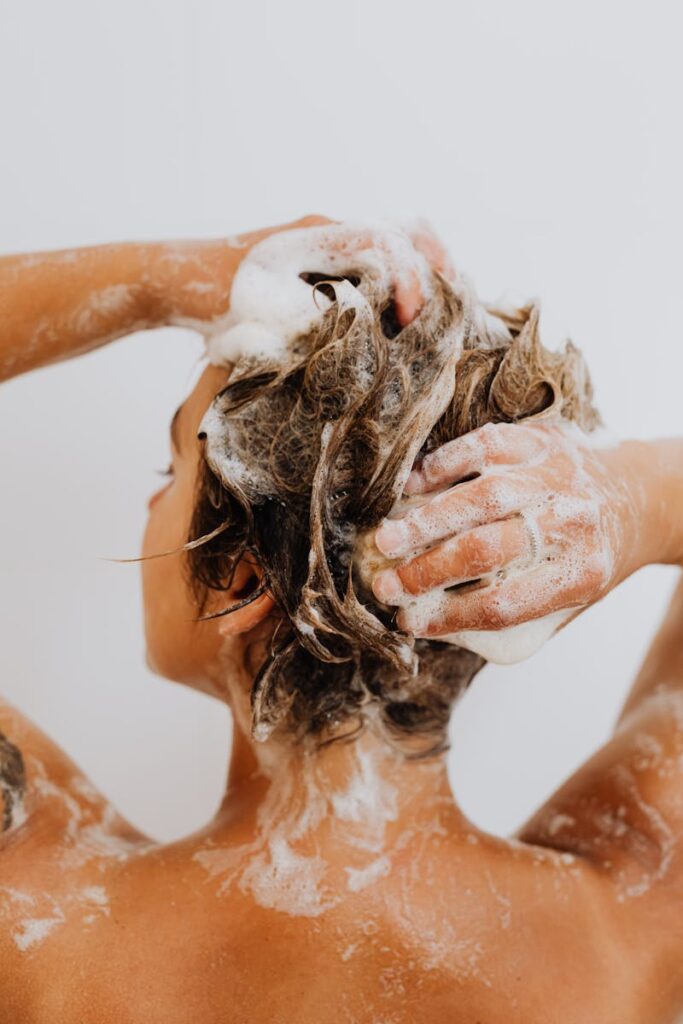
4. **Shampoos with Non-Water-Soluble Silicones and Heavy Buildup** Silicones are a pervasive ingredient in many shampoos and conditioners, prized for their ability to instantly impart a smooth, shiny, and frizz-free appearance. They achieve this by coating the hair shaft, creating a sleek surface that feels soft to the touch and reflects light. While this immediate aesthetic benefit is appealing, especially in older formulations of products marketed for ‘sleek and shine,’ certain types of silicones, particularly non-water-soluble varieties like dimethicone, cyclomethicone, or amodimethicone, can become problematic over time. These silicones can accumulate on both the hair and the scalp, leading to what is commonly known as product buildup.
The continuous layering of these non-water-soluble silicones can create a barrier that essentially suffocates the scalp. This buildup can clog hair follicles, impeding their ability to ‘breathe’ and receive essential nutrients, which is crucial for healthy hair growth. When follicles are perpetually blocked, it can disrupt the natural hair growth cycle, leading to weakened roots and contributing to increased hair shedding or a noticeable thinning of hair density. Dr. Enrizza P. Factor, a writer at My Eczema Team, succinctly warns, “Silicones in shampoo can cause hair loss by coating the scalp so that nutrients cannot be absorbed.” This highlights the often-overlooked detrimental impact on scalp health.
A 2019 article published in Cosmetic Dermatology further underscored these concerns, pointing out that non-water-soluble silicones are indeed prone to accumulation, subsequently giving rise to various scalp issues. Reports from consumers on social media, such as complaints about certain Garnier Fructis formulations, frequently mention a greasy scalp and perceived hair thinning after extended use, directly attributing these problems to the heavy silicone content. This real-world feedback aligns with expert observations regarding the potential for these ingredients to disrupt a healthy scalp environment.
To avoid the pitfalls of silicone buildup, it’s advisable to check the ingredient list for dimethicone, cyclomethicone, or amodimethicone. While not all silicones are bad – water-soluble ones (often ending in -cone but starting with PEG- or other solubilizers) rinse out easily – it’s the heavy, non-soluble types that demand caution. If you do use products with non-water-soluble silicones, it’s important to pair them with a clarifying shampoo, used sparingly once a month, to prevent excessive accumulation. This strategic approach helps to maintain the balance between desired cosmetic effects and underlying scalp health, protecting your hair from potential damage.
Product on Amazon: Silicon Mix Shampoo Hidratante Gallon [Health and Beauty]
Brand: Silicon Mix
Binding: Health and Beauty Product Group: Beauty
Price: 25.12 USD
Rating: 4.7 Total reviews: 795
Item Form: Liquid
Hair Type: dry, Damaged Dry
Scent: Unscented
Age Range (Description): Adult
Top Review from US: “”Excellent product — it leaves the hair feeling soft, restores it, and adds shine.””
Shopping on Amazon >>

5. **Herbal or “Natural” Shampoos with Common Allergens** The term “natural” often carries a connotation of safety and gentleness, leading many consumers to instinctively reach for herbal or natural shampoos, especially when experiencing hair concerns. However, this perception can be misleading. While many natural ingredients are indeed beneficial, “natural” doesn’t automatically equate to being safe or hypoallergenic for everyone. In fact, some of the very ingredients celebrated in natural formulations, particularly essential oils, herbal extracts, and concentrated natural fragrances, can act as potent allergens, triggering adverse reactions on the scalp.
For individuals with sensitive skin or a predisposition to allergies, these natural compounds can initiate a reaction known as allergic contact dermatitis. This condition manifests as inflammation, redness, itching, and flaking of the scalp. Chronic inflammation of the scalp, regardless of its trigger, can severely compromise the health of hair follicles, disrupting the natural hair growth cycle and ultimately contributing to increased hair shedding or weakening of the hair shaft. Common culprits in this category include highly concentrated tea tree oil, peppermint oil, or rosemary extract, which, while beneficial for some, can be irritants for others. Dr. Melissa Piliang also notes that many people are allergic to parabens, which are often found in “natural” products as well, further complicating the “natural is safe” narrative.
The Journal of the American Academy of Dermatology highlighted this growing concern in a 2020 report, noting that essential oils are an increasingly recognized cause of contact dermatitis. User experiences shared on platforms like X, concerning certain Burt’s Bees shampoos, frequently detail complaints of scalp itching and hair fall, which are often indicative of underlying sensitivities or allergic reactions to the natural ingredients present. These anecdotal reports are crucial in understanding that even ingredients derived from nature require careful consideration and testing.
To minimize the risk of irritation and potential hair loss from “natural” shampoos, a cautious approach is highly advisable. If you have a sensitive scalp or a history of allergies, it is essential to perform a patch test on a small, inconspicuous area of your scalp or skin before applying a new product all over. Furthermore, try to avoid shampoos that list strong essential oils or numerous fragrances high up on the ingredient list. Opt for formulas specifically labeled hypoallergenic or designed for sensitive scalps, even if they are not exclusively “natural.” This discerning approach helps ensure that your chosen shampoo truly nourishes your hair and scalp without inadvertently causing an inflammatory response.
Product on Amazon: Nativa Herbal Shampoo and Conditioner Set, Rosemary and Onion Extract, Organic 18.5 oz Each, Paraben Free, Hair Care, Anti Hair loss excellent formula to give life to your hair, helps with hair loss
Brand: Nativa herbal
Binding: Health and Beauty Product Group: Beauty
Price: 30 USD
Rating: 5.0 Total reviews: 29
Product Benefits: Anti-Frizz, Anti-Hair Loss, Anti-Itch, Hair Care
Material Type Free: Parabens
Item Form: Liquid
Hair Type: All
Top Review from US: “Me gusta el olor , mi cabello queda limpio y suave , solo espero que me ayude con la caída de mi cabello , solo lo he usado 1 vez .”
Shopping on Amazon >>
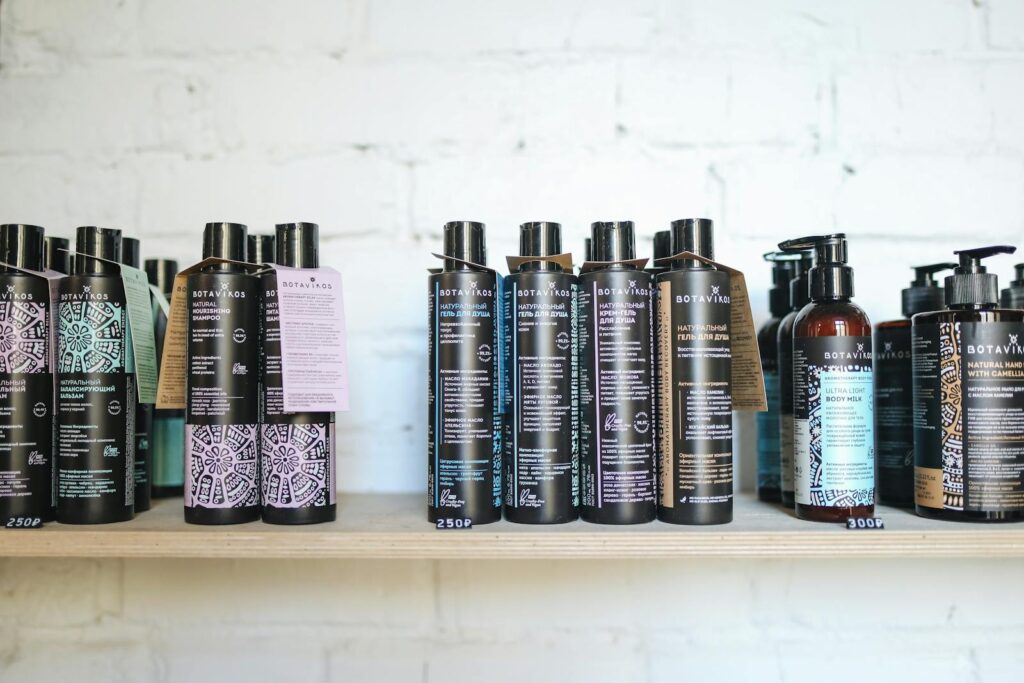
6. **Cheap Drugstore Shampoos with High Alcohol & Synthetic Fragrances** The allure of budget-friendly shampoos lining drugstore shelves is understandable, offering what appears to be an economical solution for daily hair care. However, the cost-cutting measures employed in the formulation of many low-price shampoos often come at the expense of hair and scalp health. These products frequently contain high concentrations of inexpensive, harsh ingredients such as specific types of alcohol and synthetic fragrances, which can have detrimental effects on your hair over time, potentially contributing to thinning and breakage.
Alcohols like SD Alcohol 40 or isopropyl alcohol are often included in these formulations to serve as solvents, emulsifiers, or quick-drying agents. While they help in product texture and application, their primary drawback is their severe drying effect. High levels of alcohol can strip the scalp and hair of essential moisture, leading to a dry, irritated scalp and brittle, fragile hair strands. When hair becomes excessively dry, it loses its elasticity and strength, making it much more vulnerable to breakage during brushing, styling, or even normal movement. This can mimic significant hair loss, as strands snap rather than shed from the root.
Furthermore, synthetic fragrances, often simply listed as “parfum” or “fragrance” on the ingredient list, are another common culprit in cheaper shampoos. These complex chemical mixtures are designed to create appealing scents but are also a frequent cause of scalp irritation and allergic reactions. For sensitive individuals, these fragrances can trigger inflammation, itching, and redness on the scalp. As discussed, chronic scalp inflammation is a direct pathway to compromising hair follicle health, disrupting the growth cycle, and ultimately accelerating hair shedding. Many budget shampoos also lack sufficient nourishing and moisturizing ingredients, leaving hair unprotected and susceptible to environmental damage and mechanical stress.
Consumer advocacy groups, such as Consumer Reports, and numerous dermatologist blogs consistently highlight the harsh formulations found in many budget shampoos, cautioning against their regular use. Amazon reviews for widely available, inexpensive shampoos often contain firsthand accounts of increased hair breakage and discomfort, underscoring the real-world impact of these formulations. To protect your hair and scalp, it is wise to scrutinize the ingredient list of any shampoo, especially those at the lower end of the price spectrum. Actively avoid products where alcohol (particularly denatured alcohol or isopropyl alcohol) or “parfum” appear high on the ingredient list, indicating a significant concentration. Opting for shampoos with gentler, more nourishing ingredients, even if they come at a slightly higher price point, can be a crucial investment in the long-term health and vitality of your hair.
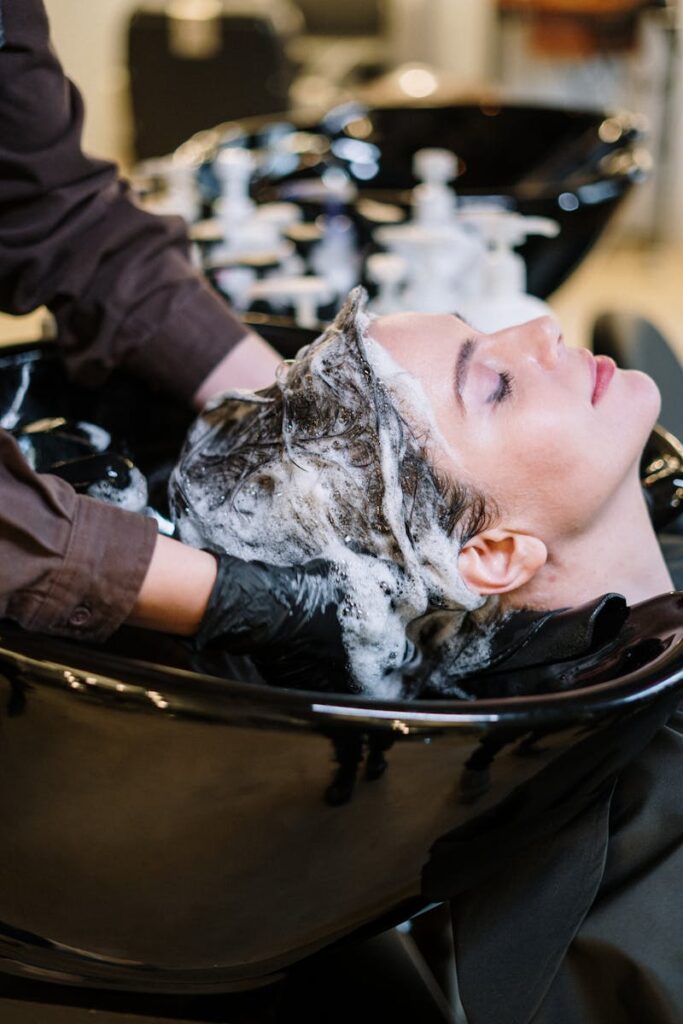
7. **Shampoos with Formaldehyde Releasers (e.g., DMDM Hydantoin)**Among the most alarming ingredients lurking in some hair care products are formaldehyde-releasing preservatives, with DMDM hydantoin being a primary example. This chemical compound, designed to prevent microbial growth and extend product shelf life, functions by slowly releasing small amounts of formaldehyde. While this might sound like an effective way to keep your shampoo fresh, the implications for scalp and hair health can be profoundly damaging, leading to severe irritation and, crucially, hair loss.
The slow release of formaldehyde on the scalp can act as a potent irritant, triggering allergic contact dermatitis in sensitive individuals. This inflammation is not merely uncomfortable, causing itching and redness, but it actively compromises the integrity of hair follicles. When follicles are subjected to chronic inflammation, their ability to sustain healthy hair growth is severely hampered, often leading to weakened roots and increased hair shedding. The severity of these reactions has been substantial enough to draw serious legal attention, becoming the focus of major class-action lawsuits.
For instance, multiple class-action lawsuits have been filed against Unilever regarding their TRESemmé Keratin Shampoo and Conditioners. Users of these products, which contained DMDM hydantoin, reported significant hair loss and even scalp burns. These widespread complaints prompted Unilever, who had previously settled a similar lawsuit, to recall some of these products. Similarly, Johnson & Johnson faced a class-action lawsuit over scalp irritation and hair shedding linked to their OGX shampoos and other hair products that also contained DMDM hydantoin. These cases underscore the real and serious risks associated with these preservatives.
Further emphasizing this concern, Straight Arrow Products, the makers of Mane ‘n Tail Shampoo and Conditioners, also faced a class-action lawsuit. Consumers reported severe scalp irritation, hair loss, and even bald patches, attributing these issues to the formaldehyde-releasing ingredients in several of their formulations. These incidents serve as a stark reminder that ingredients designed for product preservation can, in some cases, have profoundly adverse effects on human health. Consumers must remain vigilant and informed about such powerful chemicals present in their daily routines.
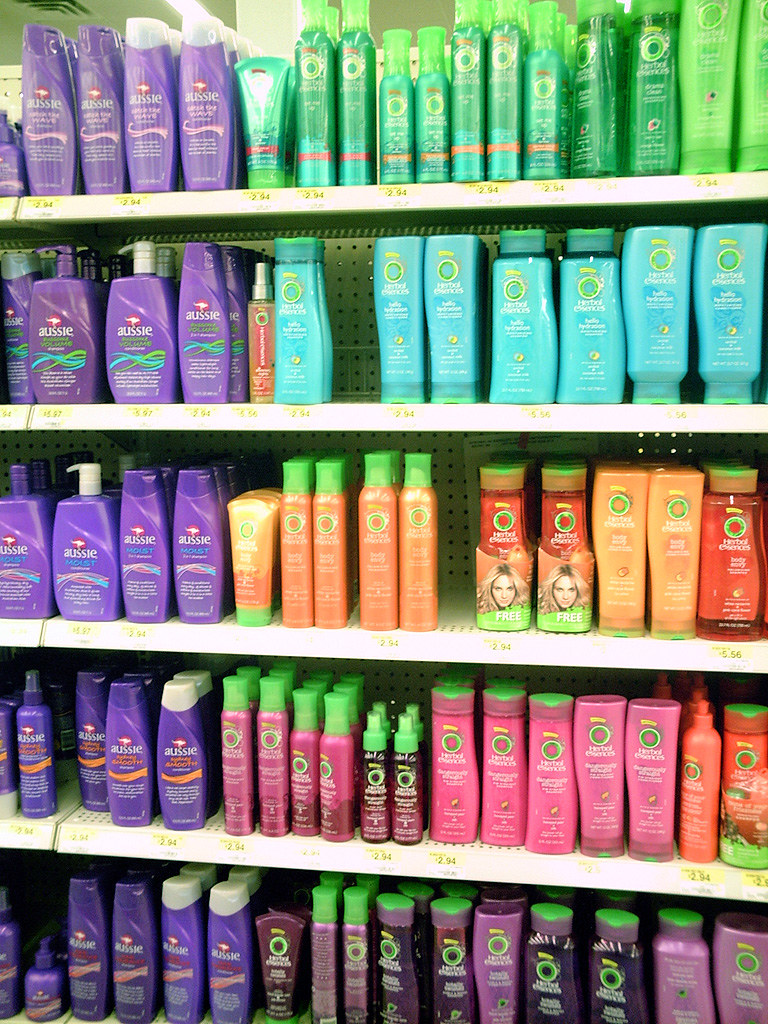
8. **Shampoos with Parabens**Another class of preservatives frequently found in shampoos, parabens (such as methylparaben and propylparaben), has raised significant concerns within the health and beauty industry. While lauded for their antibacterial and antifungal properties that extend product longevity, these synthetic compounds have been linked to a range of hair-related issues. For many individuals, parabens are not merely inert preservatives but rather active agents that can negatively impact scalp health and, consequently, contribute to hair loss.
Dr. Melissa Piliang specifically points out that “many people are allergic to them.” This allergic reaction can manifest as scalp irritation, dryness, redness, and itching, all of which create an unhealthy environment for hair follicles. When the scalp is chronically irritated, the hair growth cycle can be disrupted, leading to weakened hair shafts and premature shedding. Beyond direct irritation, Dr. Enrizza P. Factor details further concerns, stating that parabens can cause “dryness and scalp irritation” as well as “fading hair color and hair loss.”
A more profound concern surrounding parabens revolves around their potential to disrupt hormonal balance within the body. These preservatives have been observed to mimic estrogen, a hormone that plays a role in various bodily functions, including hair growth regulation. This endocrine disruption can lead to damaged hair follicles over time, thereby causing increased shedding and contributing to hair thinning. Given these potential hormonal impacts and documented allergic responses, Dr. Factor advises, “it is best to avoid parabens until proven otherwise.”
The widespread use of parabens in personal care products, including many shampoos, necessitates careful label scrutiny. Despite their effectiveness as preservatives, the collective evidence from expert dermatologists and research suggests a cautious approach. Choosing paraben-free formulations can be a simple yet significant step towards safeguarding scalp health, minimizing irritation, and supporting a more stable environment for robust hair growth, particularly for those prone to sensitivities or experiencing unexplained hair thinning.
Product on Amazon: Ginger Lily Farms Club & Fitness Moisturizing Shampoo for All Hair Types, 100% Vegan & Cruelty-Free, Fragrance Free, 1 Gallon (128 fl oz) Refill
Brand: Ginger Lily Farms
Binding: Health and Beauty Product Group: Beauty
Price: 19.99 USD
Rating: 4.4 Total reviews: 754
Item Form: Liquid
Hair Type: All
Scent: Unscented
Age Range (Description): Adult
Features:
1. Moisturizing Shampoo: Instantly smooths, restores and revitalizes dry hair with lasting moisture for incredibly soft, shiny hair. Suitable for all hair types.
2. Fragrance Free Shampoo: Our unscented formula is ideal for sensitive skin and those with odor sensitivities or fragrance allergies.
3. Naturally Derived Ingredients: Enriched with naturally derived botanicals to lock in moisture and nourish dry hair. Toxin-free formula is paraben, sulfate, phosphate and gluten-free.
4. Cruelty-Free Hair Care: Ginger Lily Farms Club & Fitness collection is PETA-certified, 100% vegan and never tested on animals so you can feel good while using it.
5. Economical & Eco-Friendly: Commercial refill size helps reduce plastic consumption and is perfect for refilling shower dispensers in locker rooms, health clubs, spas or at home. 1 Gallon (128 fl. oz.)
Top Review from US: “Leaves your hair healthy looking”
Shopping on Amazon >>
Read more about: Hair Growth Vitamins: What Science and Experts Really Say

9. **Shampoos with Sodium Chloride (Salt)**Sodium chloride, commonly known as table salt, might seem like an innocuous ingredient, but its presence in shampoos, particularly in higher concentrations, can be surprisingly detrimental to scalp and hair health. Often incorporated into formulations to thicken shampoos and conditioners, giving them a more luxurious feel and appearance, this inexpensive additive comes with a significant drawback for individuals concerned about hair loss and scalp irritation. Its drying properties are the primary concern, leading to a cascade of negative effects.
According to Dr. Yoram Harth, medical director of MDhair, sodium chloride is “not recommended for women who are experiencing hair loss or thinning.” He explains that this common component of mass-produced shampoos can “dry the scalp, causing redness and itching.” A dry and irritated scalp is an unhealthy scalp, and chronic irritation can have severe consequences for hair follicles. When the scalp’s delicate moisture balance is compromised, it becomes more vulnerable to damage, which in turn can weaken hair roots and increase susceptibility to shedding.
The drying effect of sodium chloride strips the scalp of essential moisture, leading to a tight, uncomfortable sensation and often visible flaking. This persistent dryness and irritation, as Dr. Harth notes, can “damage hair follicles and cause more hair loss.” Healthy hair growth relies on a nourished and balanced scalp environment. Introducing an ingredient that actively dehydrates and irritates this crucial foundation creates an adverse condition, making hair more prone to breakage from the root and hindering the growth of new, strong strands.
Therefore, for anyone grappling with hair loss, thinning, or even just general scalp sensitivity, scrutinizing the ingredient list for sodium chloride is a prudent step. While it might contribute to a desirable product texture, its potential to exacerbate dryness, irritation, and follicular damage far outweighs this cosmetic benefit. Opting for shampoos that prioritize hydration and gentle ingredients over inexpensive thickeners can make a tangible difference in maintaining a healthy scalp and supporting the longevity and strength of your hair.
Product on Amazon: SALT NYK1 Sulfate-Free Shampoo and Conditioner Set for Color-Treated Hair, Extensions and Keratin Treatments (2 x 16.9 Fl Oz)
Brand: NYK1
Binding: Health and Beauty Product Group: Beauty
Price: 44.95 USD
Rating: 4.2 Total reviews: 8138
Product Benefits: Color Protection, Smoothening, Nourishing, Softening
Material Type Free: Salt Free, Sulfate Free
Item Form: Liquid
Hair Type: All
Features:
1. LEAVES HAIR AMAZINGLY CLEAN – With No salt, No sodium, No sulfates. This Shampoo and Conditioner set sulfate free thoroughly, but gently cleans and conditions ANY hair and scalp VERY effectively. The perfect hair Shampoo and Conditioner for Color Treated and Processed hair.
2. CLEANS WITHOUT STRIPPING AND DE-BONDING – Unlike regular shampoos containing salt. Our Paraben FREE shampoo and conditioner formula prevents irritation. The ideal Keratin shampoo and conditioner aftercare for treatment protection.
3. AMAZING FOR COLOR TREATMENTS – Dark colored hair dyes often quickly fade with regular shampoo and conditioner. NYK1 color protecting shampoo and conditioner for colour treated hair will help keep color strong and more vibrant for much longer.
Top Review from US: “I bought the SALT NYK1 Sulfate-Free Shampoo and Conditioner specifically because I have extensions, and I wanted to make sure I was using products that wouldn’t damage them. I’m really happy with how gentle and nourishing these products are. The shampoo lathers nicely and cleanses without stripping my hair, while the conditioner leaves it soft and manageable.My extensions feel healthier, and I haven’t noticed any tangling or dryness since I started using this duo. Plus, being sulfate-free gives me peace of mind knowing I’m taking care of my hair and extensions in the best way possible. Highly recommend for anyone with extensions or looking for sulfate-free hair care!”
Shopping on Amazon >>
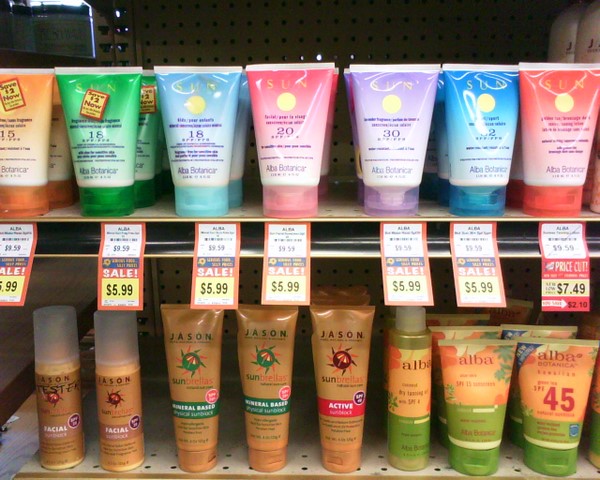
10. **The Importance of Choosing Safer Shampoo Products and Ingredients**Understanding the problematic ingredients is only half the battle; the next crucial step is equipping yourself with the knowledge to make informed, safer choices for your hair and scalp. Navigating the vast array of shampoo options can be overwhelming, but by adopting a user-centric approach and prioritizing certain qualities, you can significantly reduce the risk of exacerbating hair loss and promote overall hair health. The key lies in being a diligent label-reader and understanding what truly benefits your hair.
A primary recommendation is to “Look for Sulfate-Free Formulas.” As previously discussed, sulfates like SLS and SLES are harsh detergents that strip natural oils, leading to dryness and weakening. Shampoos without sulfates are much “gentler on the scalp and help maintain natural oils, which are essential for healthy hair.” This simple switch can protect your scalp’s delicate barrier function and prevent unnecessary moisture loss, particularly beneficial for individuals with sensitive scalps or dry hair types.
Furthermore, it’s wise to “Opt for Natural Ingredients” but with a critical eye. While “shampoos with aloe vera, tea tree oil, or coconut oil nourish the scalp and hair without causing irritation or hair damage,” it’s vital to “Patch Test ‘Natural’ Products.” As noted earlier, some “natural” ingredients, especially highly concentrated essential oils, can be allergens for sensitive individuals. Always test on a small scalp area first to “rule out allergies,” ensuring that the natural benefits don’t inadvertently trigger an inflammatory response that could contribute to hair shedding.
Beyond specific ingredients, a personalized approach is key. You should “Match Your Hair Type,” selecting a shampoo that addresses your specific needs, “whether it’s for dryness, oiliness, or type of hair loss.” This user-centric approach ensures your product is working *with* your hair, not against it. Finally, and perhaps most importantly, “Read Labels Carefully.” Actively “Avoid products with synthetic fragrances, parabens, or formaldehyde-releasing preservatives like DMDM hydantoin,” as these are consistently linked to irritation, hormonal disruption, and hair damage. Making these conscious choices empowers you to select shampoos that support, rather than sabotage, your hair health journey.
Read more about: Unlock Crystal Clarity: Car Expert Reveals Unbelievable Hacks for Fog-Free Windows – No Wiping, No AC Blasting Required!
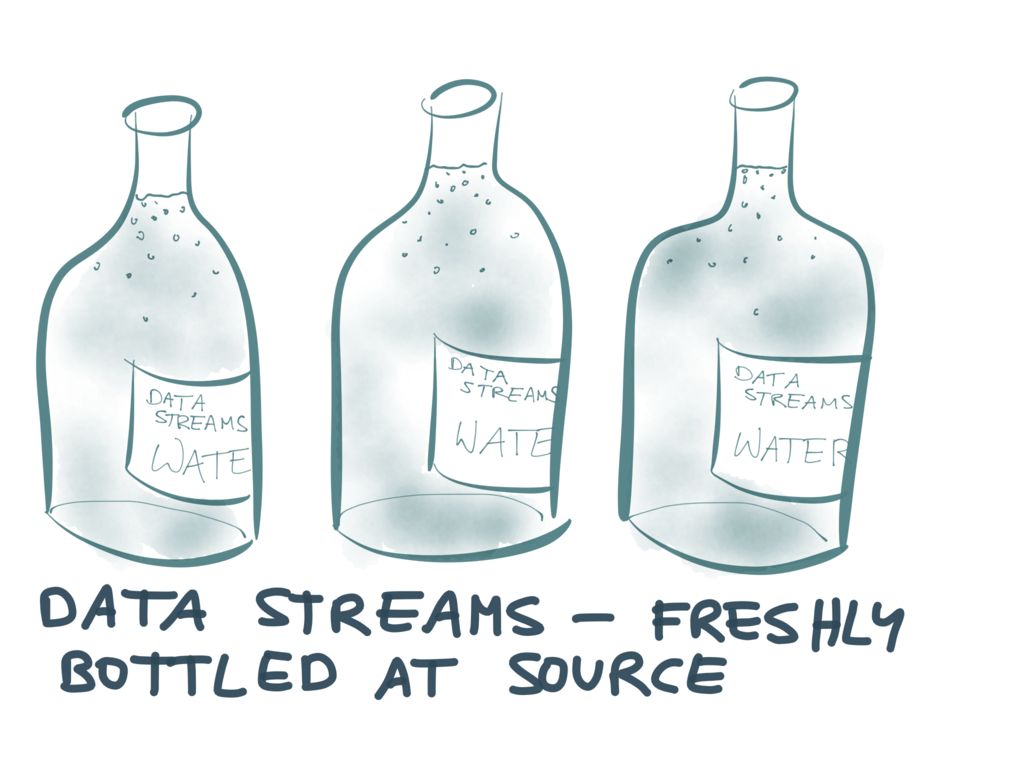
11. **Beyond the Bottle: Holistic Hair Health and Professional Guidance**While the right shampoo is undeniably a cornerstone of healthy hair care, it’s crucial to recognize that hair loss is a multifaceted issue, and a truly comprehensive approach extends far “beyond the bottle.” Shampoo, even the gentlest formulation, is just one piece of a larger puzzle. Addressing hair health holistically involves considering various lifestyle factors, hair care habits, and, importantly, seeking professional medical advice when persistent hair loss becomes a concern. Your hair’s vitality is a reflection of your overall well-being.
One significant aspect of comprehensive care involves minimizing “Repeated Trauma to the Hair.” This includes avoiding “constant stress on your hair from excessive brushing, tight hairstyles, or frequent use of heat styling tools and chemical treatments.” Such habits can lead to “acquired trichorrhexis nodosa,” a condition characterized by weakened and broken hair shafts that makes hair appear thinner and more prone to breakage. Embracing gentler styling methods, using lukewarm water for washing, and giving your hair breaks from heat can make a profound difference in preserving its strength and density.
“Emotional or Physiological Stress” is another powerful contributor to hair loss. High levels of stress, whether from illness, surgery, or major life events, can trigger “telogen effluvium,” a temporary form of hair loss where a significant number of hairs enter the shedding phase. While stress-induced hair loss is often reversible once the stressor is resolved, managing stress through mindfulness, adequate sleep, and a balanced diet rich in protein, iron, and omega-3s is vital. A healthy internal environment supports robust hair growth, ensuring your body has the building blocks it needs.
Finally, and perhaps most critically, for any persistent or accelerating hair loss, “team up with a dermatologist to understand why — and what you can do about it,” as Dr. Piliang advises. “Waiting for a new shampoo to kick in will just delay care.” A professional can perform a “good workup” to identify underlying causes such as thyroid disease, genetics, medication side effects, or nutritional deficiencies. They can also recommend “Hair-Loss Shampoos That May Support Hair Regrowth,” like those containing ketoconazole or 1% pyrithione zinc, which “help prevent and treat inflammation” and “kill a dandruff-causing yeast that lives on the scalp called pityrosporum (Malassezia).” Consulting a dermatologist or hair transplant specialist early ensures you receive accurate diagnosis and tailored treatment options, maximizing your chances of restoring hair health and confidence.
Choosing the right shampoo is an essential step in maintaining healthy hair and preventing potential damage. The journey through problematic ingredients like harsh sulfates, formaldehyde releasers, parabens, sodium chloride, and the pitfalls of overuse or allergic reactions, highlights a crucial truth: not all products marketed as beneficial truly are. By actively scrutinizing labels, understanding ingredient functions, and opting for gentler, nourishing alternatives, you can protect your scalp and hair from unnecessary harm. Remember, your hair’s vitality is a reflection of careful choices, from the products you use to your overall hair care regimen and general well-being. If shedding persists, don’t hesitate to seek expert medical advice – your hair, and your confidence, are worth the investment in informed care.



